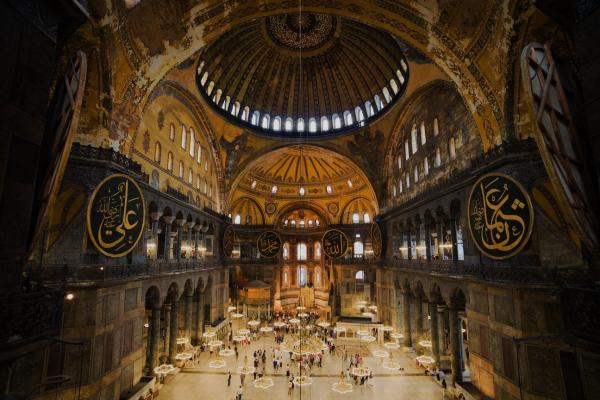I RECENTLY MADE the mistake of taking an extended trip to my favorite city. Istanbul is a rambunctious sprawl of cultures and histories—catnip for a writer, as I am, and for a college student, as I was on my first visit nine years ago.
Chief among Istanbul’s delights is the Hagia Sophia, first basilica, then mosque, then museum—part architectural wonder, part historical jigsaw puzzle. Above the ochre-domed great hall is the famous juxtaposition: a gilded mosaic of Mary and the Christ Child flanked by two enormous placards in Arabic script—the names Allah and Muhammad. The effect is somehow both solemn and conspiratorial, as if some divine negotiation has happened behind the scenes.
Hagia Sophia means “holy wisdom,” and to enter into its hushed halls, a thin winter light stretching its way across 1,500-year-old pillars to twinkle through heavy chandeliers, is to enter a palpable mystery. It is constitutionally impossible to behold the Hagia Sophia for the first time and not feel a stirring in the soul.
But this was my second time. After eight years of living in Washington, D.C., and working for social justice, I was carrying with me a very different posture toward the world—a suspicion of appearances, a stubbornness to accept grand narrative. I have learned much more about the world and the many ways it fails us since my first glimpse of a shimmering Istanbul. I’ve written about systems that rely on marginalization and the politically convenient, and I’ve felt, deeply and insistently, all the ways the world has grown more threatening for the most vulnerable.
Read the Full Article

